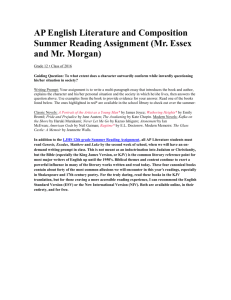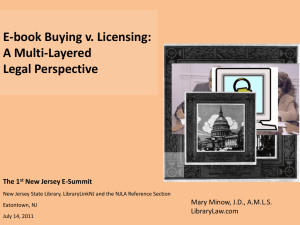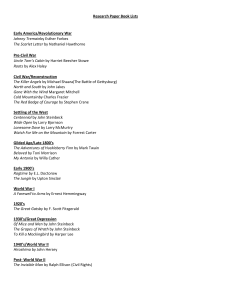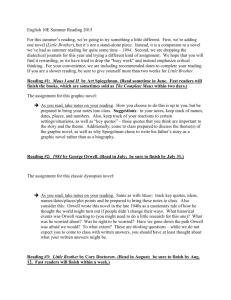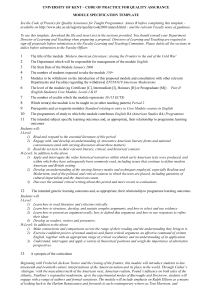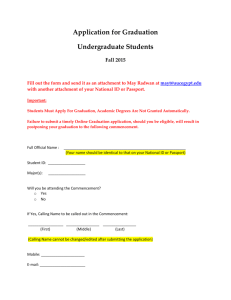It's right to tell the grads like it is
advertisement
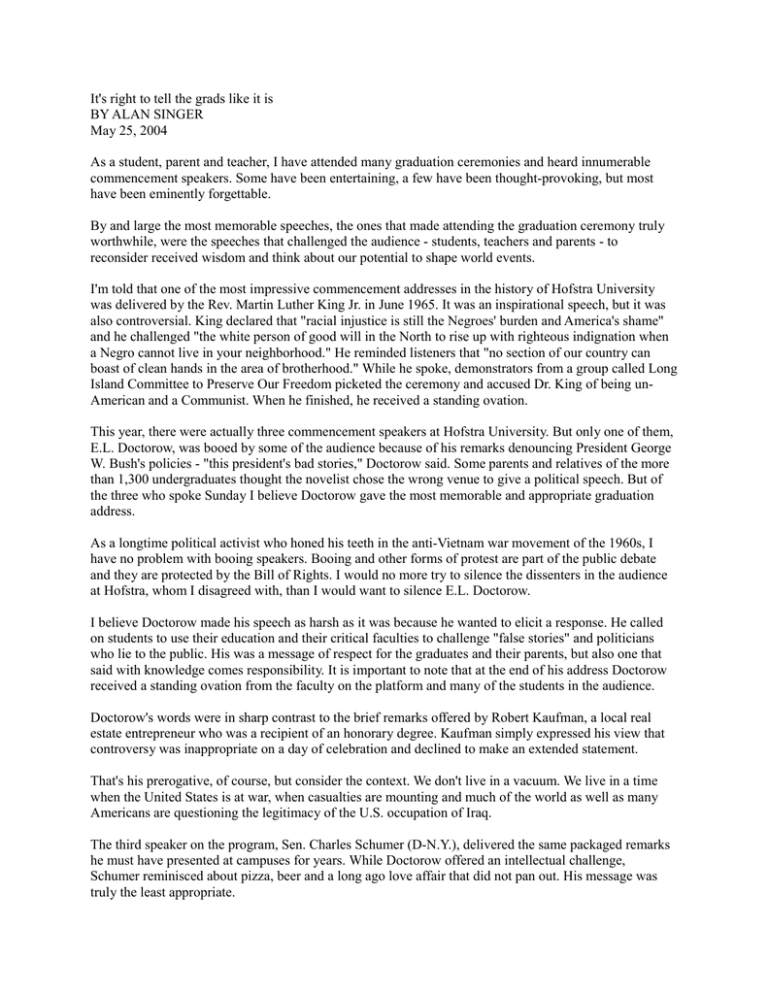
It's right to tell the grads like it is BY ALAN SINGER May 25, 2004 As a student, parent and teacher, I have attended many graduation ceremonies and heard innumerable commencement speakers. Some have been entertaining, a few have been thought-provoking, but most have been eminently forgettable. By and large the most memorable speeches, the ones that made attending the graduation ceremony truly worthwhile, were the speeches that challenged the audience - students, teachers and parents - to reconsider received wisdom and think about our potential to shape world events. I'm told that one of the most impressive commencement addresses in the history of Hofstra University was delivered by the Rev. Martin Luther King Jr. in June 1965. It was an inspirational speech, but it was also controversial. King declared that "racial injustice is still the Negroes' burden and America's shame" and he challenged "the white person of good will in the North to rise up with righteous indignation when a Negro cannot live in your neighborhood." He reminded listeners that "no section of our country can boast of clean hands in the area of brotherhood." While he spoke, demonstrators from a group called Long Island Committee to Preserve Our Freedom picketed the ceremony and accused Dr. King of being unAmerican and a Communist. When he finished, he received a standing ovation. This year, there were actually three commencement speakers at Hofstra University. But only one of them, E.L. Doctorow, was booed by some of the audience because of his remarks denouncing President George W. Bush's policies - "this president's bad stories," Doctorow said. Some parents and relatives of the more than 1,300 undergraduates thought the novelist chose the wrong venue to give a political speech. But of the three who spoke Sunday I believe Doctorow gave the most memorable and appropriate graduation address. As a longtime political activist who honed his teeth in the anti-Vietnam war movement of the 1960s, I have no problem with booing speakers. Booing and other forms of protest are part of the public debate and they are protected by the Bill of Rights. I would no more try to silence the dissenters in the audience at Hofstra, whom I disagreed with, than I would want to silence E.L. Doctorow. I believe Doctorow made his speech as harsh as it was because he wanted to elicit a response. He called on students to use their education and their critical faculties to challenge "false stories" and politicians who lie to the public. His was a message of respect for the graduates and their parents, but also one that said with knowledge comes responsibility. It is important to note that at the end of his address Doctorow received a standing ovation from the faculty on the platform and many of the students in the audience. Doctorow's words were in sharp contrast to the brief remarks offered by Robert Kaufman, a local real estate entrepreneur who was a recipient of an honorary degree. Kaufman simply expressed his view that controversy was inappropriate on a day of celebration and declined to make an extended statement. That's his prerogative, of course, but consider the context. We don't live in a vacuum. We live in a time when the United States is at war, when casualties are mounting and much of the world as well as many Americans are questioning the legitimacy of the U.S. occupation of Iraq. The third speaker on the program, Sen. Charles Schumer (D-N.Y.), delivered the same packaged remarks he must have presented at campuses for years. While Doctorow offered an intellectual challenge, Schumer reminisced about pizza, beer and a long ago love affair that did not pan out. His message was truly the least appropriate. Educated adults know the world is a complex place with many grave problems and often contradictory ideas about how to solve them. We can agree to disagree, but a university is the right setting to give every perspective the benefit of the doubt. I believe Doctorow made his speech as harsh as it was because he wanted to elicit a response.'
